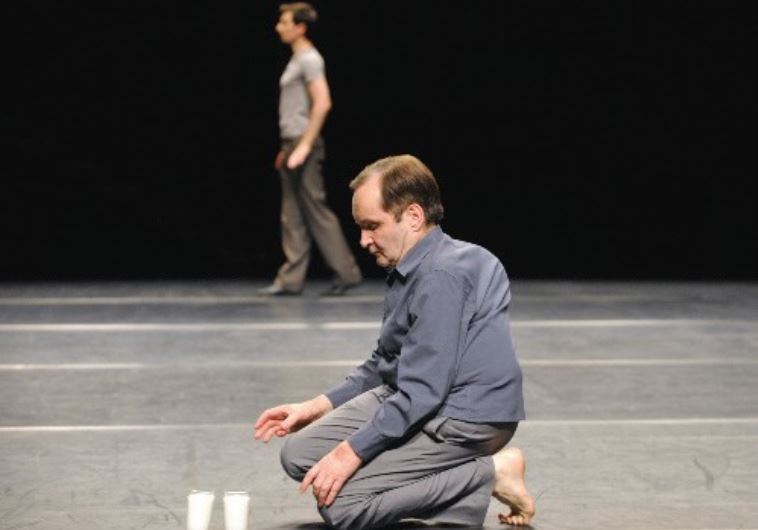A beautiful dance
A German dancer with an unconventional physique, Raimund Hoghe explores the notions of beauty as part of the Diver Festival in Tel Aviv.
 Raimund Hoghe (front) and longtime collaborator Emmanuel Eggermont perform ‘L’Apres Midi’(photo credit: ROSA FRANK)Updated:
Raimund Hoghe (front) and longtime collaborator Emmanuel Eggermont perform ‘L’Apres Midi’(photo credit: ROSA FRANK)Updated: